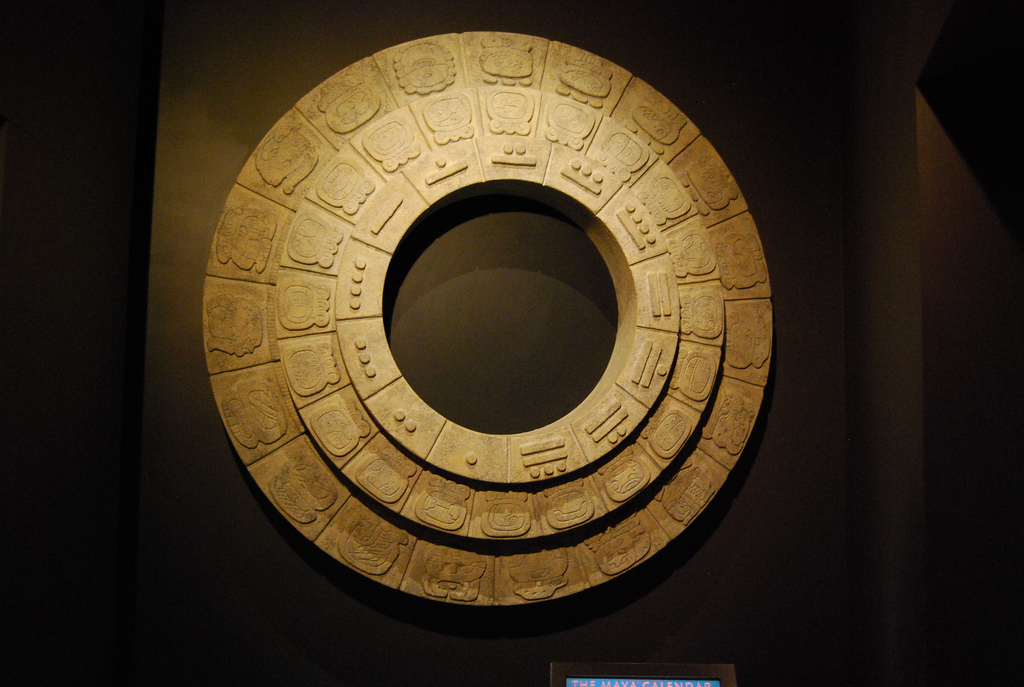
Doomsday is a mere month away—if you believe in that sort of thing. Brace yourself.
We can expect the apocalypse to occur on Dec. 21, according to the Mayan calendar that will end and begin a new term, which will begin our winter solstice.
The day is said to be the last day of the 13th baktun, or 144,000-day cycle of the Ancient Mayan calendar. The Ancient Mayans saw the end of the 13th baktun as the end of a full cycle.
Many people took this information and ran with it, saying that since the Mayan Calendar term ends on Dec. 21, 2012, this means that our earth will cease to live.
Wrong. Like any calendar, when a new year comes, we get a new one. Same exact concept here. A Mayan term has ended and a new cycle will now begin. It does not mean that the world as we know it will end due to the beginning of a new cycle.
Some may ask why we link the Mayan calendar to our doomsday. The answer is simple; because “many people who would like to believe in something that science can’t explain look to alternative sources of information on which to base their ideas,” explained Concordia University Professor Lorenzo DiTommaso, who teaches religion and studies global apocalyptism.
DiTommaso supports the idea that nothing will occur that day because “it assumes that the universe works in ways beyond scientific explanation.”
Marcello Canuto, the director of the Middle American Research Institute at Tulane University, told LiveScience website that the “13th baktun date was an important calendrical event that would have been celebrated by the ancient Mayans; however, they make no apocalyptic prophecies whatsoever regarding the date.”
Besides, not all believers of the Mayan apocalypse believe the world will turn into ashes.
“If there is change, it will be because we decide it, not because somebody or something has foreordained it,” DiTommaso said.
The National Aeronautics and Space Administration has been the source of many answers to people’s concerns and worries on whether or not the world will end that day.
“Remember the Y2K scare? It came and went without much of a whimper because of adequate planning and analysis of the situation. Impressive movie special effects aside, Dec. 21, 2012, won’t be the end of the world as we know it. It will, however, be another winter solstice,” states NASA’s website.
Although some people believe the world will end on Dec. 21, others believe that it won’t necessarily end, but that something negative will happen.
The NASA website states that “nothing bad will happen to the Earth in 2012. Our planet has been getting along just fine for more than 4 billion years, and credible scientists worldwide know of no threat associated with 2012.”
It seems social media truly blew this one out of proportion. This whole issue has made me so enraged with people who don’t know how to simply fact check and will believe anything that they are told. To my knowledge, no one ever paid any attention to the Mayan calendar before, but suddenly it’s the one thing we are going to base our whole existence and future on.
I’m sure everyone remembers the biblical “rapture” that was supposed to take place in May of this year? Well, like that day, I’ll be waiting for Dec. 21 to come and go, just to continue on with my life, nothing having changed.




I don’t mean to nitpick, but I think this is something that should be pointed out: the picture accompanying this piece doesn’t depict a calendar (it’s not even a Mayan artifact). It’s an Aztec (different civilizations, both geographically and chronologically) sun stone (used for ritual combat sacrifice), not a calendar. And yes, I realize that a lot of people know it as the “Aztec calendar”, but it’s an unfortunate misconception. Again, I don’t mean to give you guys a hard time, but inaccuracies like this bug me a bit, both as a Mexican and as a former history museum guide.